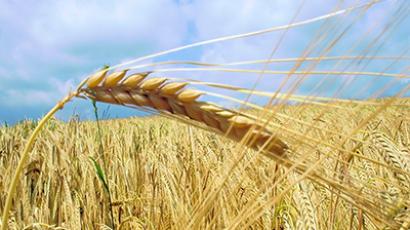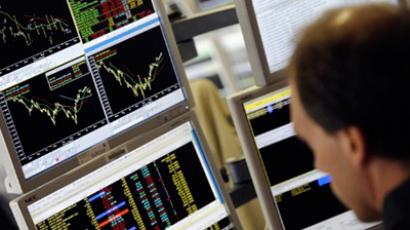Tale of two crises - 1998 and now
With volatility pervading global markets, ahead of the August 17 anniversary of Russia’s 1998 default, Business RT spoke with Roland Nash, Partner at Verno Capital, about the lessons learned.
RT: Are there dark clouds on the horizon?RN: “There are clouds on the horizon. It rained actually last week, a very chaotic period of time last week.Things are a little bit clearer at the moment.Markets have stabilized.They have priced in a great deal of uncertainty last week.We are hopeful that if things stabilize now then valuations will again become important.But you know, it is another typical August in Russia.A lot of chaos unfortunately.” RT: Some say the 1998 default was due to wrong economic policy, but is the current one safe enough?RN: “The 1998 crisis makes what we are seeing now look like a walk in the park. I mean 1998, the equity market lost 93% of its value.Last week the Russian market lost about 15% of its value.It hurt but it was nothing compared to 1998.Russia has moved on a lot further from then.You know, Russia now, it performs alongside a lot of the other emerging markets, alongside a lot of the developed markets, and looks to its lead from there.In 1998 it was really a case of its own, and a pretty terrible period for anybody who had to live through it.”RT: Russian economic stability is tightly connected with crude price fluctuations, but what else should the country be aware of? RN: “I think that you have got economic growth in this country now, growth that should be, even given the uncertainty that’s going on in Europe, going to be about 4% for this year.That is not bad, actually, in the current environment.The exchange rate is a lot more flexible, the banking system is really quite stable.You have got some money leaving the country but again not nearly as much as then.It is a very different place, you know.People are investing, people are building businesses, in a way that didn’t exist in the late 1990s.We have had 10 years of, there has been a lot of volatility but it is stable compared to the previous ten years.” RT: What are the chances that the current market volatility could spur any serious economic problems?RN: “If it continues, you know.If the volatility that we saw last week becomes the new norm, then yeah, absolutely, we are going to be living through another crisis.But I think it would be a very dangerous to assume that last week is something normal rather than something that came out of the blue, quite frankly. There are very big major structural issues in Europe that need to be addressed.But the growth that is coming out of places like Asia, and South America, and to a lesser extent Russia, but also Russia, that is what is driving global growth nowadays.So Europe has to deal with those issues.If you are candid with their issues then I don’t think the outlook for Russia needs to be anything that should be describe as a crisis.”














